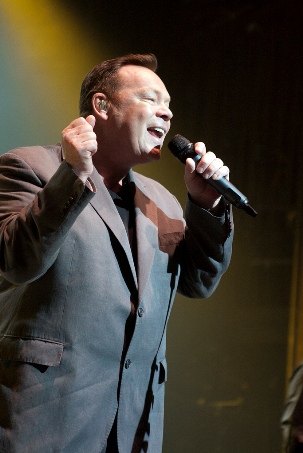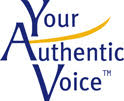 I don’t consider myself a jazz musician – not even a little bit. That said, I sit in at the monthly jams at The Nash, a jazz club in downtown Phoenix. I’ve done this for a few years now, and for some reason, this scares me.
I don’t consider myself a jazz musician – not even a little bit. That said, I sit in at the monthly jams at The Nash, a jazz club in downtown Phoenix. I’ve done this for a few years now, and for some reason, this scares me.
It’s a small, intimate club. People are there to hear good jazz. I sing songs I know, and sometimes those I don’t know very well, for the experience. I usually know the pianist, but not necessarily the rest of the group. What I don’t know is what the band is going to do, and more importantly, whether I’ll hear the changes. It is jazz, after all.![]() This seems to be just enough to put me on edge. Not just of the fear of the unknown, but whether I’ll make a mistake, get lost, or not keep up.
This seems to be just enough to put me on edge. Not just of the fear of the unknown, but whether I’ll make a mistake, get lost, or not keep up.
Now, to be clear, there are no real consequences should I mess up. No one is going to throw anything at me. I’m not being paid, so I don’t have to worry about disappointing my client. Hopefully, the band will follow me, whatever I do. The audience knows it’s a jam. I seem to do well enough to garner some enthusiastic applause. Plus, like I said, I’ve been on stage and singing for decades. No, there is nothing I can logically point to that will hurt me.
So, why the nerves? This is the exact question my clients ask me when they need or want to be on stage to speak. It’s a conundrum. I get it.
I’ve read more on this subject than you will ever want to know, and tried out different techniques to lessen the terror. I’ve analyzed myself to death, and done enough therapy to release my inner angst to last several lifetimes. I won’t bore you with the details. Instead, here are a few tips that have helped me I hope can serve you:
1. Accept and respect yourself as you are, right now. Truly. Whatever is creating the discomfort is there for a reason. At some point, it was important to activate that fight, flight or freeze survival skill, which is often at the core of stage fright. You just might not remember why, and even if you do, your subconscious is still interpreting this situation as dangerous. This is not a reflection of your character. Often just knowing this can relieve some of the discomfort. And, if you got the message you need to feel embarrassed or ashamed for appearing nervous on stage, that’s not about you either. Let yourself off the hook.
2. Reframe the situation and your part in it. I love reframing. We can look at the same scenario in several different ways. For example, when I get nervous, instead of thinking this could be a disaster, I remind myself my life will not end if I forget that word or miss that note, and my audience won’t keel over either. I’m not that important. This takes the focus off of me and puts it where it belongs – on my audience. My self-consciousness lessens. In fact, remembering to not take oneself so seriously can free you to have fun and be much more engaging!
3. Take care of your needs. Depending on my level of comfort going into the gig, I might have my notes handy, use a stool to get myself anchored before I stand, and wear flats so I don’t have to teeter on high heels. I always get there early, check out the space, make sure the AV works, find out if anything has changed about the event, walk the stage to get comfortable, meet members of my audience and locate friends I can connect with during the presentation, and more. I have rehearsed my speech or song so many times I don’t have to worry about that, and I spend time alone before going on to get myself in the right mindset (based on my Stage Fright to Stage Free! template). All of these things work to get me ready, just like an athlete preparing for the big game.
Here’s a secret you might not know – even the greatest performers and speakers get stage fright when they try new things. It happens to all of us. And it’s okay. We’re human.
Every time we take a new step, we will face fear. In fact, the more you master something, you might have greater expectations of yourself because you know when you hit a bad note. You know what a good speech entails. Does that mean we don’t keep learning and stretching? No! Because, we gain confidence by doing. As we walk through our fears, we expand our lives, gain greater access to all of our gifts and abilities, and increase our opportunities to contribute to others. We also start to enjoy the very thing that used to scare us. In fact, it can become so rewarding, you make a career of it. I’d love to support you. I can be reached at Andrea@AndreaBeaulieu.com.
Image courtesy of Flickr user eva rinaldi

Leave A Comment